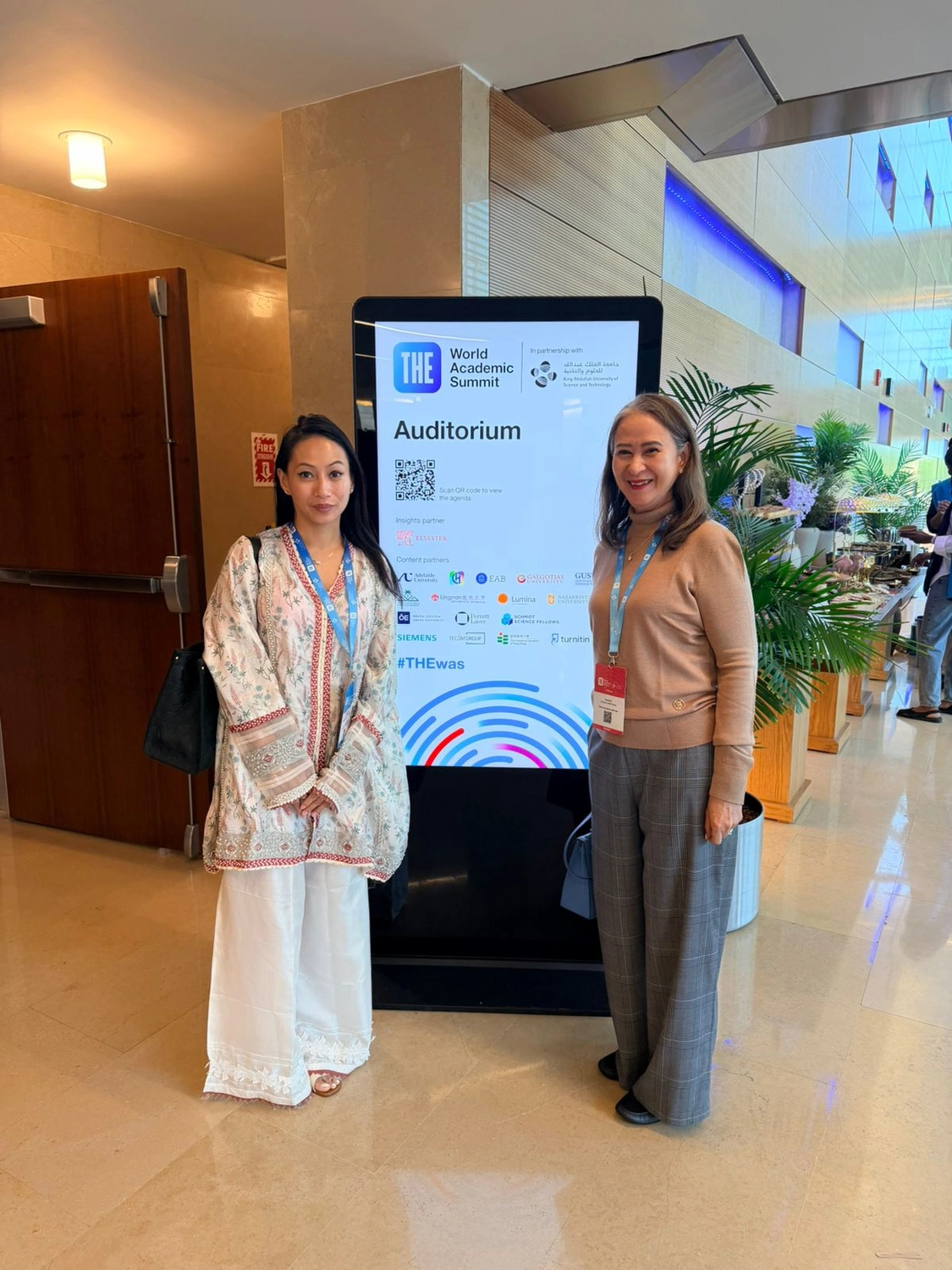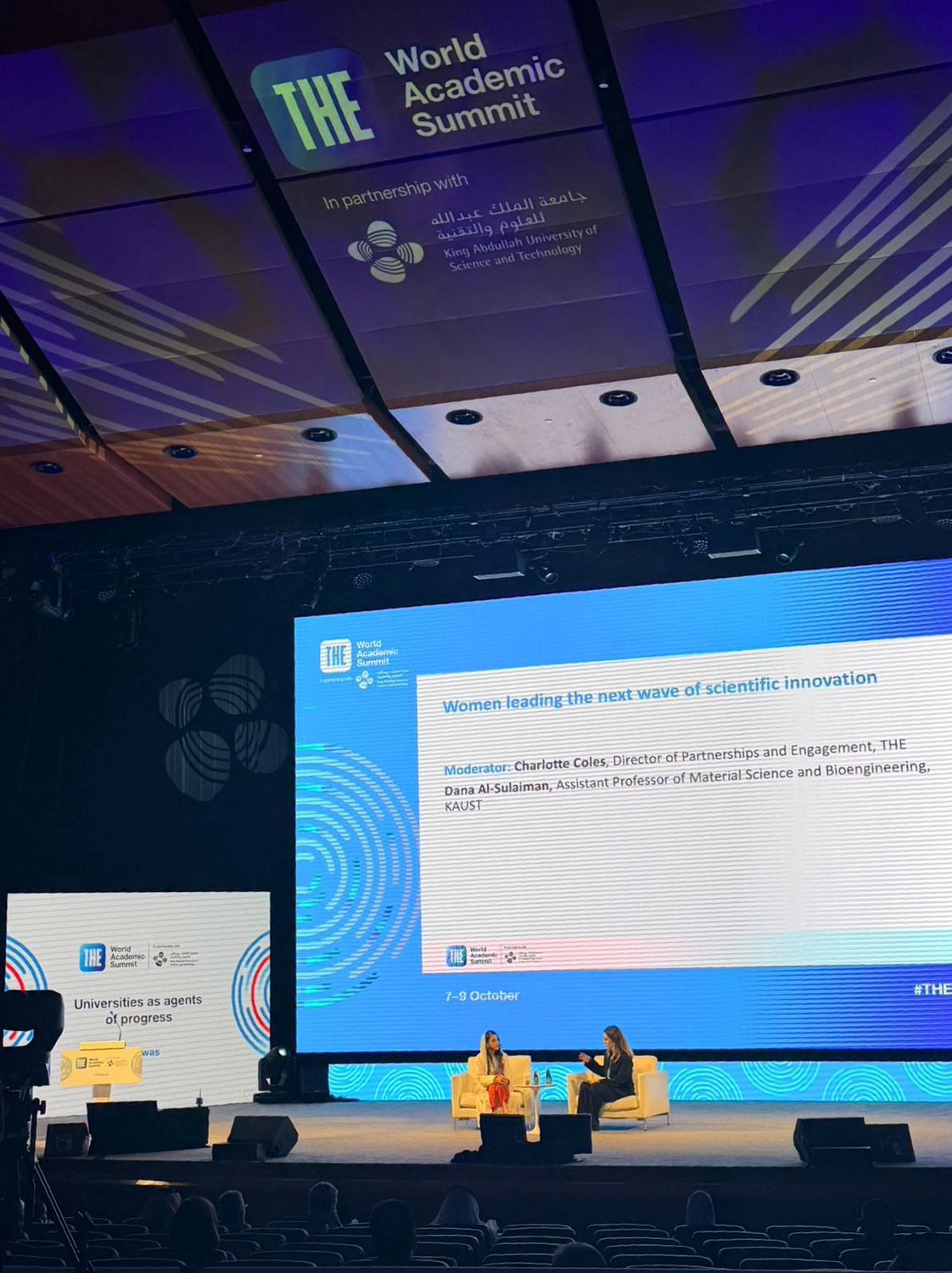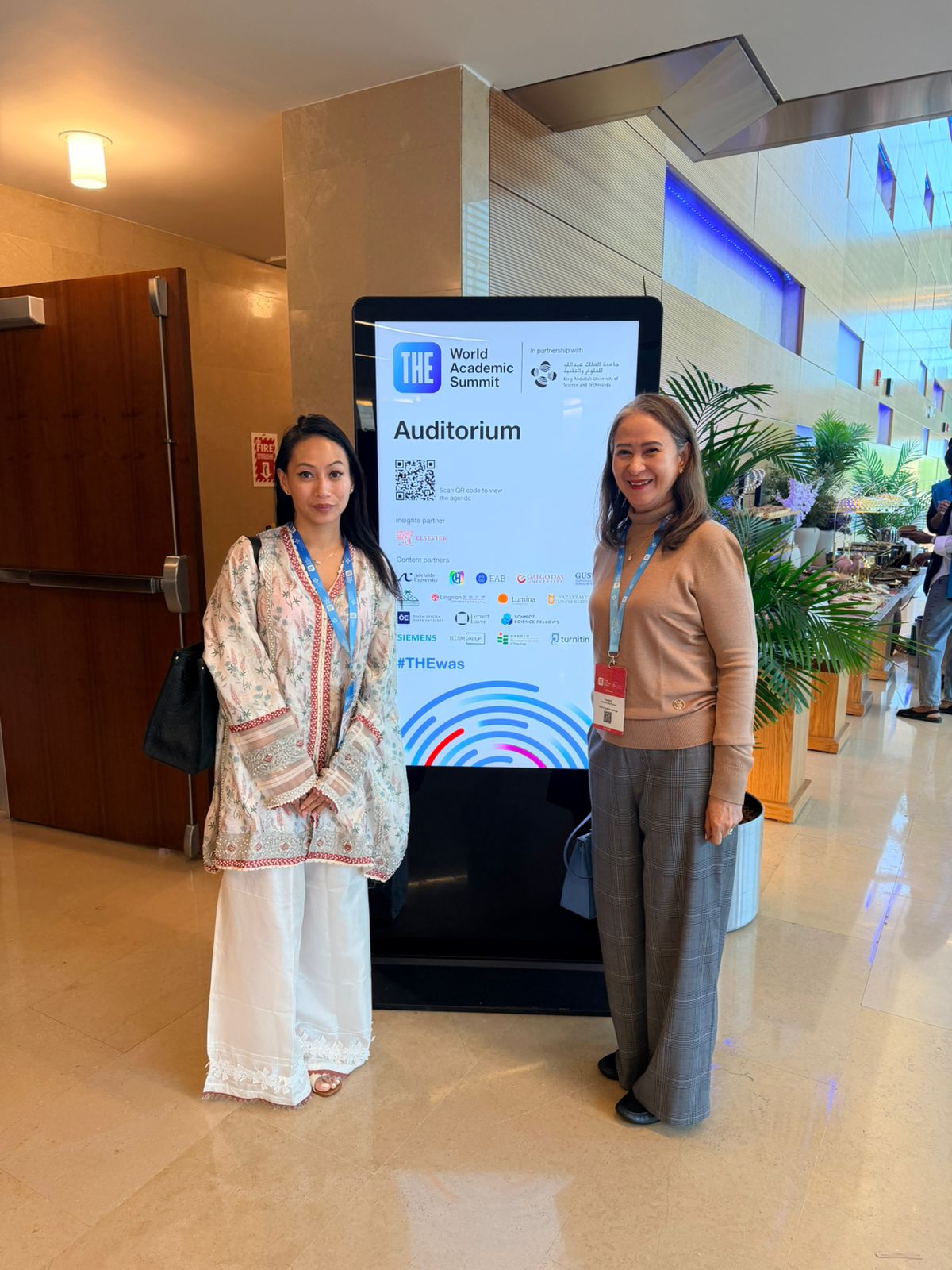A powerful session titled “Women Leading the Next Wave of Scientific Innovation” was held on October 8, 2025, as part of the Times Higher Education (THE) World Academic Summit 2025, hosted by the King Abdullah University of Science and Technology (KAUST) in Saudi Arabia — marking the summit’s first-ever edition in the Middle East.
The session explored the vital role of women in advancing scientific discovery and societal progress. Dr. Carmen Z. Lamagna and Ms. Dulce Lamagna, members of the Board of Trustees of the American International University–Bangladesh (AIUB), participated in the thought-provoking discussion, underscoring AIUB’s dedication to fostering gender equity, leadership, and inclusive innovation in higher education and research. Their engagement highlighted the importance of building environments where women scientists can thrive, lead, and contribute meaningfully to global development.
The fireside chat featured Professor Dana AlSulaimani, a pioneering researcher from KAUST, and Charlotte Coles, Director of Partnerships and Engagement at THE. Prof. Dana shared insights from her groundbreaking research on minimally invasive biosensing technologies designed for early detection of diseases such as cancer and Alzheimer’s. Her work, which integrates materials science and bioengineering, is revolutionizing healthcare by enabling proactive and personalized medical solutions—a testament to how academic innovation can yield tangible societal benefits.
While celebrating such progress, the session also shed light on the ongoing challenges faced by women in science. Despite representing nearly 30% of the global scientific workforce, women remain underrepresented in leadership roles. Prof. Dana emphasized that “progress should not be mistaken for arrival,” citing persistent barriers and the “leaky pipeline” phenomenon that causes many women to exit the field at various career stages.
The discussion called for gender-sensitive policies, greater visibility, and systemic support mechanisms—including micro-grants for conferences, re-entry programs, and targeted funding initiatives—to help retain and advance women in scientific careers. Participants stressed that active sponsorship—where senior professionals advocate for women’s opportunities and leadership roles—can be even more impactful than mentorship alone, accelerating career growth and closing the gender gap.
Speakers further noted that solving global challenges requires inclusive, interdisciplinary, and cross-border collaboration. Innovation thrives when diverse voices contribute, ensuring solutions are more equitable, sustainable, and relevant to real-world needs.
Quoting insights from Professor Rose McKay, the session concluded with a powerful reminder: science must serve society. When women are empowered and supported, they drive transformative change—creating a multiplier effect that uplifts entire communities. Investing in women’s scientific advancement, therefore, is not only a matter of fairness but also a strategic imperative for accelerating innovation and societal progress.
As the summit underscored, empowering women in science is essential to achieving a more inclusive, resilient, and innovative global future—where every discovery contributes to shared human advancement.



